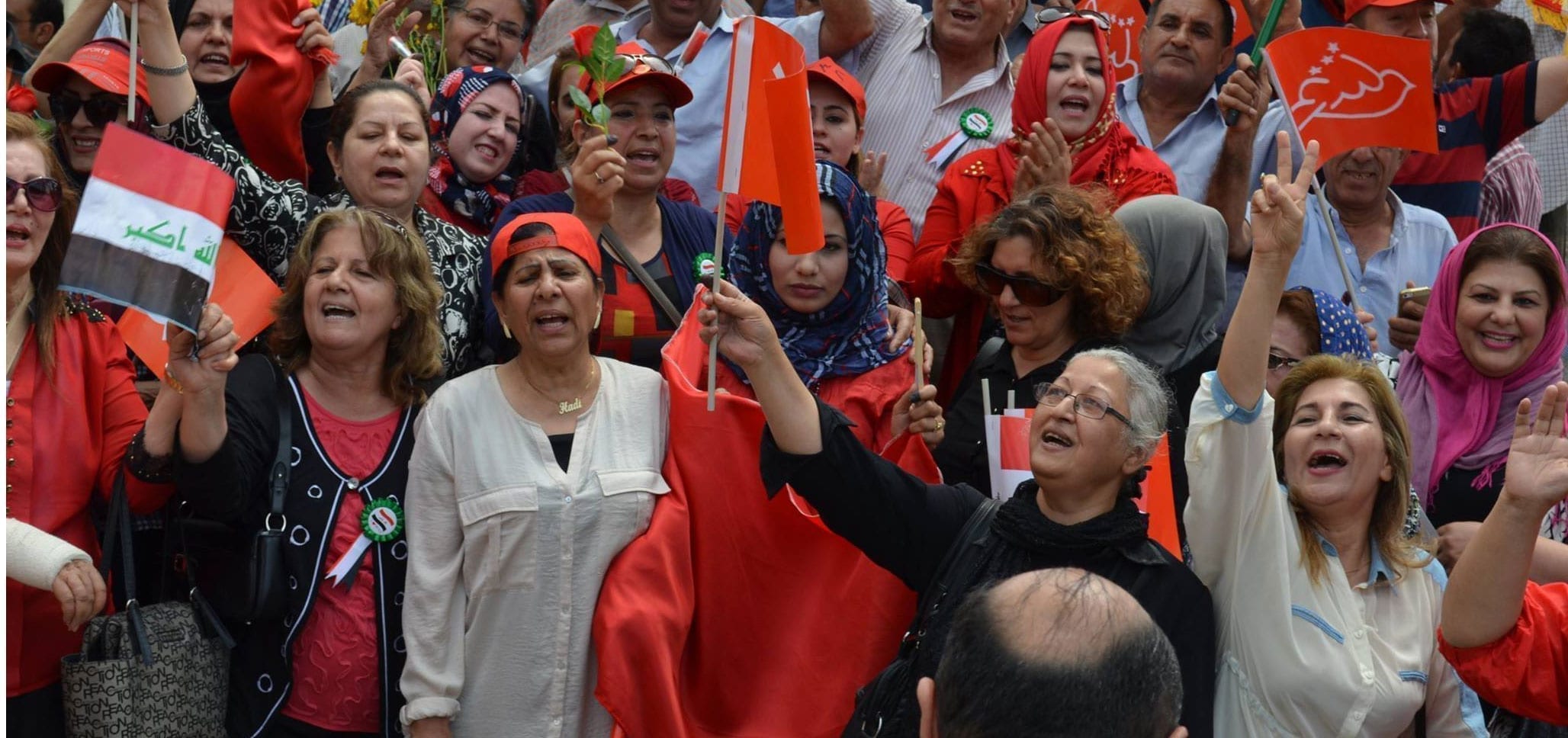Women workers made important gains under Iraq’s new labor law, the country’s first ever to prohibit sexual harassment at the workplace. The law clearly defines sexual harassment and specifies penalties for perpetrators. Women union activists led their unions in fighting for this protection.
“The law also addresses the arbitrary dismissal of workers and other issues that will serve the interests of working women, which should encourage more women to work and enjoy those protections and rights,” says Saba Qasim Yousef, an officer in the women’s affairs department of the Iraqi Federation of Oil Unions (IFOU). Yousef was among many women taking an active role in the union movement’s labor law campaign.
Crucially, the law aims for gender equality, specifically regarding wages, hiring and working conditions. It requires employers to provide onsite child care, and increases paid maternity leave to 14 weeks, with the option of additional unpaid leave for up to a year. Employers must allow woman workers to return to their jobs or equivalent positions.
In effect on February 1, the law was a massive victory for Iraq workers and their unions and followed the Iraq union movement’s three-year campaign for passage of a labor law in line with International Labor Organization (ILO) conventions. The Solidarity Center provided essential support to the union movement throughout the campaign.

Iraq’s labor law includes protection against workplace sexual harassment. Credit: GFITU
Women Union Members Took Key Role in Drafting Labor Law
The labor law’s provisions addressing gender equality came about because women union activists and leaders participated in all aspects of the campaign—drafting amendments, taking part in conferences and meetings with parliament and the Ministry of Labor and Social Affairs (MoLSA) and advocating for its passage.
“Women had a leading role in the campaign to restructure the law draft by participating in the workshops and seminars,” says Ilham Abdul Ma’boud Majid, president of the Telecommunications Union, General Federation of Workers and Unions in Iraq (GFWUI), Basra Branch.
“Also, they were watching the developments in the process, despite their obligations as employees and mothers at home and the long distances they needed to travel to attend those activities,” she said. “They were motivated by the idea of having a modern labor law that will protect them from all kinds of discrimination.”
Labor Law Will Encourage Women to Join Workforce
The law’s new protections “will have a positive impact in increasing the number of women workers and guaranteeing their strong presence in the labor market, by treating them fairly at their workplaces with equality in terms of assignments and jobs,” says Alya’a Hussien Mahood, women’s affairs officer for the General Federation of Iraqi Trade Unions (GFITU).
The final draft, passed late last year, retained the unions’ input and is a significant victory for all workers because it expands coverage to workers not included in the civil service law. This means that workers in the public sector who are not civil servants have the chance to join and establish their own unions.
The law allows for collective bargaining, including for workers without a union, and provides a good frame for freedom of association and protections for unions and their members. It further limits child labor, improves rights for migrant workers, provides better protections against discrimination at work and is the country’s first legislation to address sexual harassment at work. The law also enshrines the right to strike, banned since 1987. (Highlights of the law’s improvements.)

